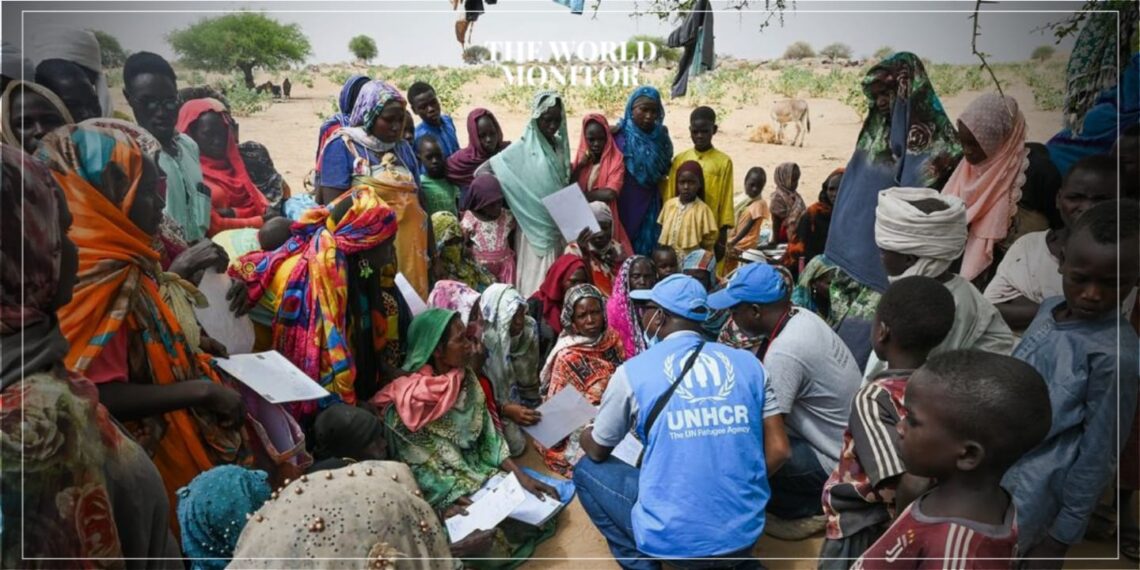The UN Resident Coordinator and Humanitarian Coordinator in Sudan, Khardiata Lo NDiaye, has announced a potential breakthrough in addressing the dire hunger crisis gripping the nation. Sudanese authorities have agreed to facilitate the delivery of humanitarian aid from neighboring Chad.
This development offers a beacon of hope for millions of people facing food insecurity in displacement camps across Darfur, Kordofan, and other regions. The ongoing conflict, now in its eleventh month, has severely impacted food security, leaving over two-thirds of Sudan’s 42 million population vulnerable.
According to UN reports and other international organizations, over 25 million Sudanese, roughly 65% of the population, require immediate food assistance. The situation has reached a critical juncture, with essential supplies like food, water, electricity, and communication services becoming scarce. Additionally, over 60% of hospitals are no longer operational.
The World Food Programme (WFP) estimates that 18 million people across Sudan are currently experiencing acute hunger, with reports of starvation deaths emerging. The Darfur General Directorate of Displacement Camps reports a staggering daily death toll of 250 to 300 individuals within the camps, primarily due to hunger and malnutrition-related illnesses.
Delivering aid remains a significant challenge due to the ongoing conflict and a significant funding shortfall. The UN Office for the Coordination of Humanitarian Affairs (OCHA) reports a 70% gap in required funding, with only $1.2 billion secured against the $4 billion appeal.
Despite the immense obstacles, local volunteer organizations are striving to provide basic food assistance to displaced persons and stranded communities. However, their efforts are hampered by limited resources and the precarious security situation across much of the country.
The prolonged conflict has severely eroded the resilience of the Sudanese population. Millions have lost their livelihoods, with estimates suggesting over 8 million individuals in the public, private, and informal sectors have either lost their jobs entirely or haven’t been paid for months.
The warring parties, the Sudanese Armed Forces (SAF) and the Rapid Support Forces (RSF), continue to trade blame for hindering the delivery of critical aid. The SAF claims the RSF’s expanded operations have exacerbated the humanitarian crisis and hampered aid access.
RSF leader Mohamed Hamdan Dagolo, also known as “Hemeti,” counters by accusing the SAF of holding back over 70% of the aid in Port Sudan, where many government institutions have relocated following the military takeover in October 2023. Hemeti has pledged to collaborate with the international community to ensure safe passage of aid to those in need.
While this recent development offers a glimmer of hope, the overall situation in Sudan remains dire. Continued international support and a cessation of hostilities are crucial to alleviate the suffering of millions and prevent further deterioration of the humanitarian crisis.






